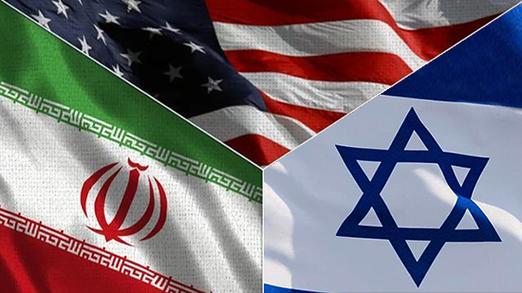
The geopolitical tensions in the Middle East have always been a focus of global attention, especially the conflict between Iran and Israel, which is also affecting the nerves of global financial markets. Recently, Iran is expected to respond to Israel's recent attacks before the US presidential election day, which undoubtedly exacerbates market concerns and may have indirect but far-reaching impacts on global financial markets.
The Middle East is a major supplier of crude oil and natural gas globally, and any conflict in the region could affect market expectations for energy supply, leading to fluctuations in oil and natural gas prices. The fluctuation of energy prices will directly affect the profitability of related enterprises and the asset allocation of investors. High oil prices may lead to increased inflationary pressures, thereby affecting the pace of global economic recovery. In addition, the rise in energy prices may also trigger an increase in global trade costs, affecting supply chains and prices around the world.
The escalation of geopolitical tensions may lead to short-term panic selling in global stock markets, especially in market sectors and individual stocks with direct economic ties to the Middle East. In the long run, sectors such as energy, defense, and military industry may benefit from increased geopolitical risks, while industries such as tourism and aviation may face pressure.
During periods of stock market volatility, investors often seek safe haven assets to mitigate risks. The prices of traditional safe haven assets such as gold and the US dollar may rise, while emerging market currencies may come under pressure. In addition, investors may also shift their funds to safer asset classes such as government bonds, further putting pressure on the stock market.
During periods of geopolitical turbulence, safe haven currencies such as the US dollar typically appreciate, while emerging market currencies may come under pressure. In addition, traditional safe haven currencies such as the Japanese yen and Swiss franc may also appreciate as investors seek safe assets. The rising risk aversion in the foreign exchange market will have an impact on global trade and capital flows, thereby affecting the recovery and growth of the global economy.
Continued geopolitical conflicts may lead to adjustments in global economic growth expectations. Institutions such as the International Monetary Fund (IMF) may adjust their forecasts for global economic growth based on the development and impact of conflicts. This adjustment will have an impact on the confidence and expectations of global financial markets, which in turn will affect investors' decisions and asset allocation.
Faced with the impact of geopolitical tensions on global financial markets, investors need to remain calm and rational, and develop reasonable investment strategies to cope with possible market fluctuations and risks.
Investors need to closely monitor the developments in the Middle East situation and the reactions of global financial markets. By timely obtaining market information and data, investors can better assess market trends and formulate investment strategies.
In times of geopolitical turbulence, investors need to allocate assets reasonably to avoid risks. Funds can be diversified and invested in different types of asset classes and regions to reduce the risk exposure of a single asset or region. At the same time, it is also possible to consider increasing the proportion of investment in safe haven assets such as gold, US dollars, etc.
Although geopolitical tensions may have an impact on short-term market trends, investors need to maintain a long-term perspective and focus on the fundamentals and profitability of the company. By investing in companies with strong fundamentals and growth potential, investors can achieve stable returns in the long term.
Faced with potential market fluctuations and risks, investors need to develop contingency plans to cope with unexpected situations. This includes measures such as setting stop loss points and adjusting asset allocation ratios to ensure timely stop loss and reduce losses in the event of unfavorable market conditions.
In short, investors need to closely monitor market dynamics and geopolitical developments, and develop reasonable investment strategies to cope with possible market fluctuations and risks. By implementing measures such as rational asset allocation, maintaining a long-term perspective, and developing emergency plans, investors can maintain rationality and achieve asset preservation and appreciation in the face of geopolitical tensions.

The South Korean political arena has once again been embroiled in a public controversy over a judicial investigation that has shaken the entire nation.
The South Korean political arena has once again been embroi…
On the morning of December 29th local time, the precious me…
According to the US media Barchart, recently, the fluctuati…
On December 29th, Mar-a-Lago in Florida, USA, witnessed a h…
SoftBank Group announced on Monday that it has agreed to ac…
Recently, the US State Department issued a visa ban, adding…